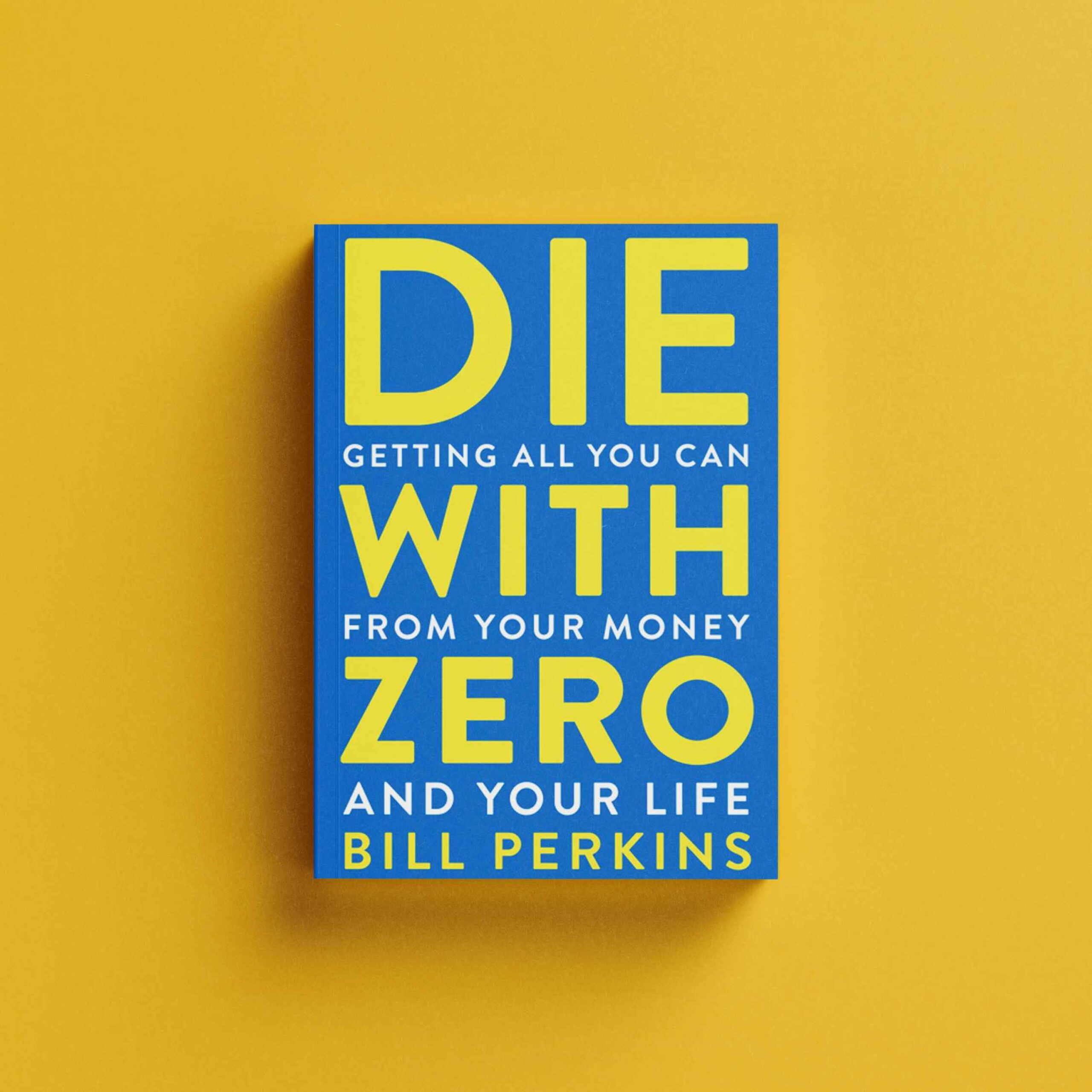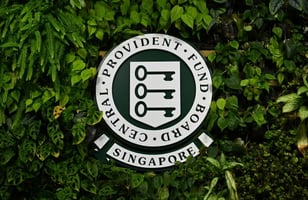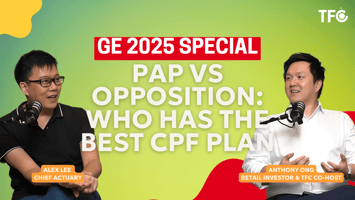One Chief Actuary's Early Retirement Blueprint: Why Financial Independence Isn't Just About the Money
Chief Actuary, Alex Lee, shares hard-won wisdom on insurance, investment, and the psychological freedom that comes with financial security
The gleaming towers of Singapore's financial district have witnessed countless success stories, but few as refreshingly candid as that of Alex Lee. At 50, this former chief actuary has achieved what many consider the holy grail of personal finance: early retirement without inheriting millions or launching a unicorn startup. His story isn't just about accumulating wealth—it's about understanding the profound psychological freedom that comes with financial security.
The Actuary Advantage: More Than Just Insurance
When most Singaporeans think of actuaries, they picture insurance professionals buried in spreadsheets. But as Alex explains, the actuarial profession extends far beyond traditional insurance. According to CNBC, actuaries consistently rank among the top three professions in the United States for high salary and good work-life balance.
"Actuaries use data to help people navigate situations where there is uncertain financial outcome," Alex explains. This skill set has found applications in unexpected places—from Uber's data science team, led by an actuary, to climate disclosure and financial planning roles across industries.

In Singapore, actuaries earn competitive salaries. According to Glassdoor, the average actuary salary is S$126,000 per year, with PayScale reporting an average of S$96,600. This earning potential, combined with the analytical mindset required for the profession, creates a natural foundation for financial independence.
The Psychology of Financial Freedom
What sets Alex apart isn't just his earning capacity—it's his understanding of the psychological dimension of money. "The way that I look at my finances is I look at my life as a portfolio," he explains. "For a young person who just started working, your biggest asset is actually not the balances that shown in your bank account or investment account, right? It's actually the value of your future income."
This perspective led to a crucial insight: balancing career risk with investment risk. Alex recognised his tendency to be "quite loud, quite straight talking," which could potentially create career challenges. To compensate, he adopted a defensive approach to spending and investment strategy.
The psychological benefits became apparent early in his career. When Alex paid off his HDB flat by age 35, he discovered something profound: "I can go into office and speak freely and don't have to be afraid of your boss." This financial security actually accelerated his career progression, as he could afford to be more honest and vocal about his expertise.
The Whistleblower's Dilemma
Alex's commitment to ethical practices was tested when he worked at an insurance company that wasn't selecting fund managers on an arms-length basis. This practice potentially led to suboptimal investment outcomes that would ultimately affect customer benefits. When he raised concerns with regulators about proper fund manager selection protocols, the company viewed this as whistleblowing, leading to workplace retaliation.
"A fairly senior person bore grudge and then try to retaliate against me," Alex recalls. "So that of course has a negative financial impact, but luckily because I already have my roof above my head secured. So that was okay."
This experience highlights the importance of Singapore's regulatory framework. The Monetary Authority of Singapore (MAS) has established comprehensive guidelines for fund management companies, including proper governance structures and conduct requirements. However, Alex's experience demonstrates that individual integrity can sometimes come at a personal cost.

The Insurance Framework That Actually Works
For someone who spent his career in insurance, Alex's personal coverage choices are surprisingly minimalist—and strategically sound. His portfolio consists of just three components: integrated shield plan, term life insurance, and disability income insurance.
The most controversial aspect of his approach is what he doesn't buy: critical illness insurance. "Most people are now buying critical insurance because they are worried about being hit by cancer or or stroke," he explains. "But what kind of product you need to buy really depends on your analysis of what kind of financial loss you would suffer when you get hit with cancer or heart attack."
His logic is compelling. If struck by critical illness, he would incur medical bills (covered by his integrated shield plan) and potentially lose income if unable to work (covered by disability income insurance). Critical illness insurance provides a lump sum payment, but Alex argues that disability income insurance better matches both the timing and duration of potential losses.
His disability income insurance, purchased early in his career, costs just S$800-900 annually and provides nearly S$10,000 monthly coverage until age 65. This approach reflects his core principle: "You're not trying to strike lottery with insurance."
The Term vs. Whole Life Debate
Alex's preference for term life insurance over whole life reflects his "buy term and invest the rest" philosophy. His reasoning cuts to the heart of product transparency.
"When the insurance company give you back cash value, part of the premium that you have paid went to coverage, the other part actually went into savings or investment," he explains. "When you lump the two together, it makes it harder for you to compare different products."
This aligns with financial experts' general consensus that term life insurance is more cost-effective for pure protection needs. Alex advocates for young people to secure S$1 million term life coverage early, which can cost as little as S$300-400 annually for a 40-year term.
The Investment Strategy: Boring but Effective
Despite his sophisticated understanding of financial markets, Alex's investment approach is deliberately conservative. "I try to focus on not losing money. So that's why I'm in a very defensive asset mix. My assets is mainly in either government bonds or the CPF."
This defensive strategy reflects his acknowledgment that career risk was already significant due to his outspoken nature. Over the last decade of his career, Alex saved 20-30% of his salary annually, building a substantial portfolio that could support his early retirement goals.
His approach contradicts the common advice for young professionals to invest aggressively. Instead, Alex demonstrates that consistent saving combined with defensive investing can achieve financial independence, particularly when lifestyle inflation is controlled.

The Pinnacle Paradox
Perhaps the most interesting aspect of Alex's story is his decision to remain in his HDB flat at The Pinnacle @ Duxton, despite its astronomical appreciation in value. Units in this iconic development have recently sold for record-breaking prices, with a 5-room flat selling for S$1.58 million in 2024.
Alex purchased his unit for around S$400,000 and views it as "prepaid rent" rather than an investment. "At 400,000 ability to occupy it for 100 or 99 years, that is a fairly decent low rent that is inflation hedge," he explains.
This perspective challenges Singapore's property-flipping culture. While many of his peers upgraded to private property, Alex chose to view his home as a consumption good rather than an investment vehicle. "If you're staying, you are upgrading to another place that you live in, then you are just locking yourself into a higher recurring rent," he argues.

The Three-Phase Retirement Plan
Alex's approach to "retirement" is nuanced. He operates on a three-phase strategy:
- Plan A: Work on something meaningful for the world (like his stint with National Healthcare Group)
- Plan B: Learn new skills (such as working alongside traders to understand market operations)
- Plan C: Maximise hourly rates by leveraging past experience
This framework reflects a broader trend in Singapore's FIRE (Financial Independence, Retire Early) movement, where early retirement doesn't mean complete inactivity but rather the freedom to choose work based on purpose rather than financial necessity.

The Hong Kong Connection
Alex attributes part of his principled approach to his Hong Kong origins. "Hong Kongers tend to be very commercial and pragmatic. But you also see from the news that when there are things that major injustice when they see it, they do come out."
This cultural background shaped his willingness to speak up about industry practices, even when it came at personal cost. His experience highlights the tension between commercial pragmatism and ethical principles that many professionals face.
Living the Low-Maintenance Life
The practical aspects of Alex's lifestyle enable his financial strategy. Supporting a family of three on S$3,000 monthly (excluding insurance), he demonstrates that affluent living doesn't require lavish spending. His choices—staying in HDB housing, not owning a car, avoiding expensive hobbies, and not drinking alcohol—all contribute to his ability to maintain high savings rates.
"I don't need to be ultra rich," Alex reflects. "This is probably okay." This contentment with "enough" rather than "more" distinguishes his approach from the endless pursuit of wealth that characterises much of Singapore's financial culture.

Lessons for the Working Professional
Alex's story offers several key insights for working professionals:
- Understand your risk profile holistically: Balance career risk with investment risk
- Psychological safety has career benefits: Financial security can actually enhance professional performance
- Insurance should match actual risks: Buy coverage that aligns with your specific financial vulnerabilities
- Simplicity often beats complexity: A straightforward approach to both insurance and investment can be more effective than sophisticated strategies
- Define "enough" for yourself: Understanding what constitutes sufficient wealth is crucial for financial planning
The Regulatory Landscape
Alex's experience with workplace retaliation for raising regulatory concerns highlights ongoing challenges in Singapore's financial sector. While the Monetary Authority of Singapore has comprehensive guidelines for financial institutions, individual professionals who raise concerns may still face career consequences.
His story underscores the importance of financial independence not just for personal satisfaction but as a foundation for professional integrity. When basic needs are secured, professionals can make decisions based on principles rather than paycheques.
The Path Forward
As Singapore's cost of living continues to rise, Alex's approach offers a blueprint for achieving financial independence without extraordinary income or inheritance. His emphasis on controlling expenses, understanding risk, and maintaining principles provides a framework that working professionals can adapt to their circumstances.
The key insight from Alex's journey isn't about specific investment strategies or insurance products—both of which will evolve over time. Instead, it's about developing a coherent philosophy that aligns financial decisions with personal values and life goals.
"The first thing is to understand yourself," Alex concludes. "What sparked joy? What really sparked joy? If that answering that question help you simplify your life, you will find that you will be able to get a more healthy P&L right each month each year."
In Singapore's high-pressure, high-cost environment, Alex's story demonstrates that financial independence isn't just about accumulating wealth—it's about creating the freedom to live according to your values while maintaining financial security. For working professionals navigating their careers and financial futures, his approach offers both practical strategies and philosophical framework for achieving true financial freedom.
This article is based on an interview with Alex Lee, Chief Actuary and President of the Singapore Insurance Society. The views expressed are his personal opinions and should not be considered as financial advice. Readers should conduct their own research and consult qualified professionals before making financial decisions.
Let us know what you think about this topic, and what do you want to hear next.
You can now be our community contributor and make a pitch to have your favourite personality be on our show.
Join our community group and drop us your insights on this topic.

-4.png?width=50&name=Square%20(2)-4.png)










Let us know what you think of this post